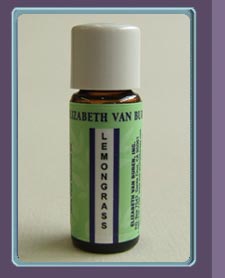Kasia shares the belief with EVB Oils - that in order for essential oils to have a therapeutic effect, they must be pure plant extracts. The best way to assure the purity and quality of each batch of oil is to test with Gas Chromatography/Mass Spectrometry (GC/MS).
We are asked often about the quality of the Essential oils that we sell. Many times the inquiries ask us questions about things such as:
Are they Therapeutic quality and what does that mean? What kind of tests are run to assure they are pure? Are they Organic? Your oils are priced so reasonably compared to other sites, Why? Why do oils smell different? Can they be taken Internally??
Do they meet GC/MS standards?
The precise breakdown of the chemical components in individual oils is important because the therapeutic benefits and safety issues of essential oils are in large part determined by their chemical makeup. GC/MS testing is also used to identify any adulteration of the essential oil tested.

Testing every batch of oil with GC/MS technology assures purity and provides the exact chemistry for the specific oil tested. This information is vital for effective medicinal blending and for quality assurance.
GC/MS tests cost about $75 per oil and tests are the responsibility of the supplier. Distillers do not always complete these tests, and the tests are too expensive for an individual to afford. However for a supplier or essential oil company, this is a low cost that applies to the entire batch purchased. It is becoming industry standard for Aromatherapy companies to provide these test results, and they are vital tool for true medicinal blending.
An interesting factor to note is that the country of origin can affect the makeup of an essential oil. Helichrysum is a good example. Helichrysum from Corsica has a large percentage of specific Esters. These esters have a strong antispasmodic effect. Helichrysum from Croatia has almost no Esters and is high in Sesquiterpenes and Ketones—known for healing damaged skin. Each Helichrysum is unique. We can only know exactly what’s in the Helichrysum by doing a GC/MS analysis.
Being able to identify the specific “chemotype” of an oil is also important. This can easily be done through GC/MS. Some plants have the genetic ability to produce different chemical constituents based on the environment they are growing in. One example is Rosemary. Depending of the country of origin, Rosemary can produce very different essential oils. The oils varies so dramatically its primary chemical family changes. This is important as you would use the chemotypes of Rosemary for different medicinal purposes, and there are different safety concerns as well.
When shopping for essential oils, always look for current GC/MS reports. Whether you’re blending medicinally or not, it’s important to know that you’re purchasing quality, unadulterated oils. Remember that fragrance oils and synthetics can cause a myriad of problems, from headaches to allergic reactions. If you’re not sure if the company you’re purchasing from performs full GC/MS reports, simply call or email their customer service. GC/MS reports are not “trade secrets” and should be easy to make available to the consumer.
Reference/Aroma Head.
Stop into Kasia Salon to learn more, and purchase PURE OILS, or learn more HERE